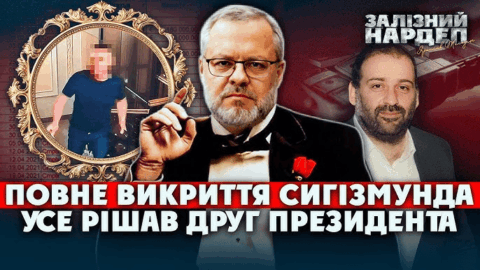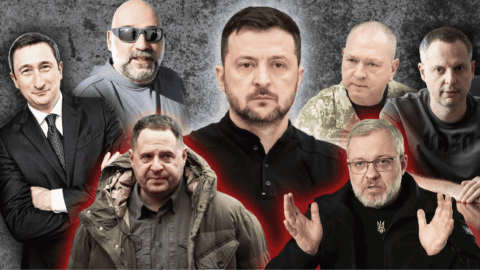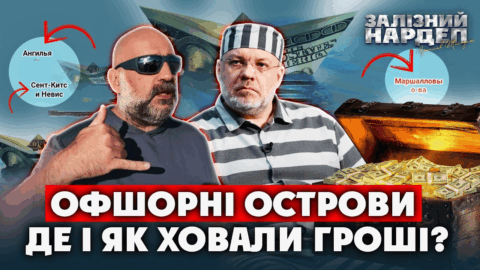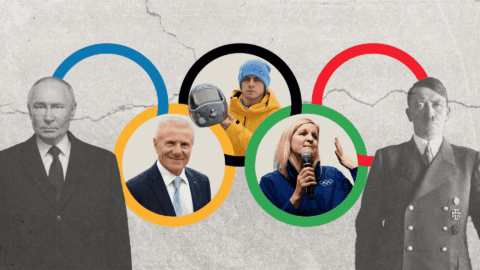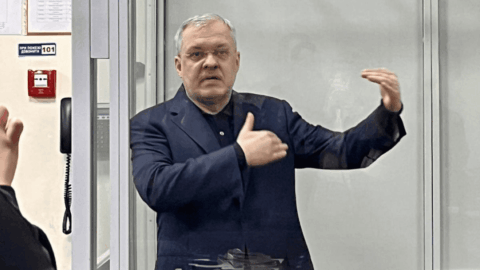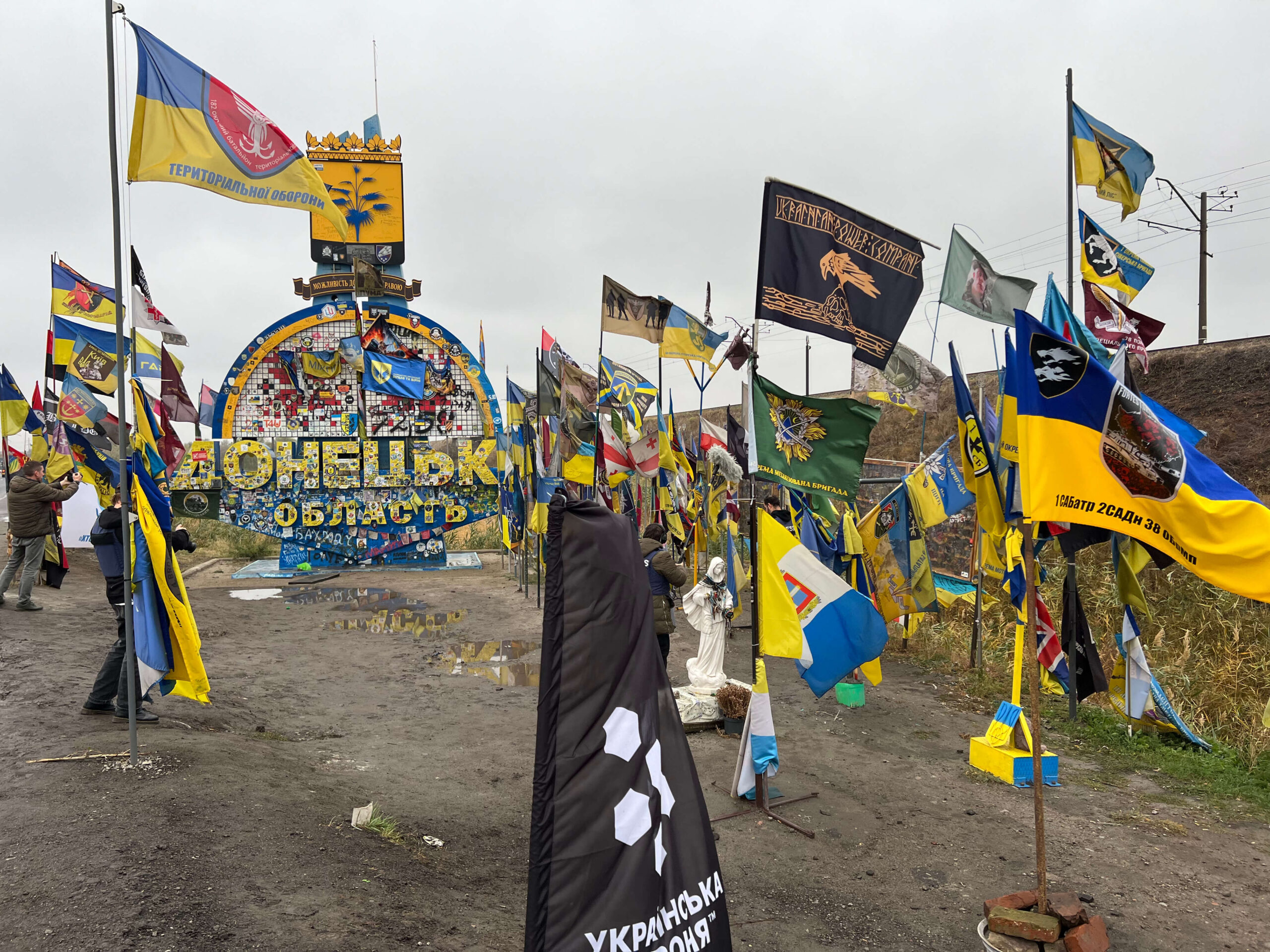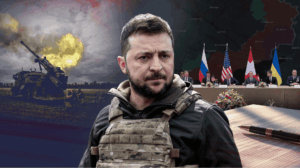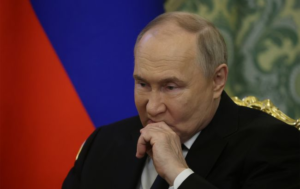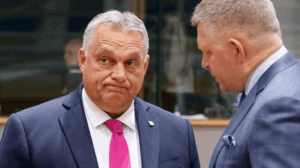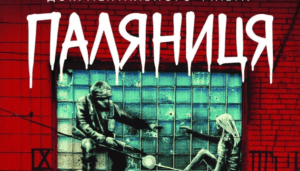While the SBU pins business ties with Russia on NABU detective Ruslan Magamedrasulov, we investigated the business past of the current NSDC secretary, former defense minister Rustem Umerov, and… found Russians there.
In 2018, according to Uzbek, Azerbaijani, and Russian media, companies connected to Umerov and his partner Lenur Mambetov joined the Uzbek investment project “Three Cities.”
Among other investors was Russian business, likely Ruslan Bayramov, owner of a huge Russian ethnocomplex recognized by Putin.
So why is a top NABU detective in pre-trial detention for the “intent” to sell cannabis, while the SBU stubbornly ignores Umerov’s “Uzbek trail” with companies alongside Russians?
Details in the AntAC investigation with Daria Kaleniuk.
Friends, hello everyone! You’re on the channel of the Anti-Corruption Action Center. My name is Daria Kaleniuk. Today we have another investigation. In fact, we had been preparing it for a long time, but we hesitated: should we release this investigation or not? We needed to evaluate the facts from different angles and ask the people involved for their positions. We spent a lot of time on this and then put the investigation on hold. But the Security Service of Ukraine, together with the Prosecutor General’s Office, convinced us that it was necessary to explain to the world what our current secretary of the National Security and Defense Council was doing in Uzbekistan many years ago, in 2018.
Why are we talking about this now? Let me remind you: on July 21, the SBU together with the Prosecutor General’s Office carried out a special operation to neutralize Russian influence in NABU. As a result, one of NABU’s top detectives, Ruslan Magomedrasulov, was detained. We are following this case closely because the charges are serious: cooperation with Russia, almost state treason.
If we look at the official communication from the SBU, we have carefully analyzed the evidence they published, and we see that a top NABU detective and his father are suspected of attempting a crime—preparing to trade with the Russian Federation. There are two pieces of evidence that the SBU released.
One piece of evidence is an audio recording, which allegedly shows Ruslan Magomedrasulov negotiating with someone about a possible sale of technical cannabis, either to Dagestan or Uzbekistan. Everyone who listens to this recording notices that it doesn’t really make sense; you can actually hear “Uzbekistan,” but the SBU claims it’s “Dagestan.” And why would they need Dagestan? Because Dagestan is part of the Russian Federation.
The next piece of evidence provided by the SBU is supposedly a Telegram conversation between Ruslan Magomedrasulov’s father and a certain Pavel, a mythical representative of some company. Pavel wants to buy cannabis to participate in a subsidy reimbursement program. The SBU shows that the company is Russian.
In a separate video report, Yaroslav Zheleznyak, a member of parliament, explained why this evidence doesn’t hold together. A company cannot apply for these subsidies because there is no separate program in Russia or Dagestan to support cannabis cultivation. And even if such a program existed, the cannabis would have to be grown in Russia. The company that Pavel supposedly represented, when contacting Ruslan Magomedrasulov’s father, is actually under Russian investigation and has never dealt with imports.
This is explained in detail in Zheleznyak’s video, which I recommend watching.
I would like to draw the SBU’s attention to another case that also involves Uzbekistan. Why are Uzbekistan and Dagestan important here? In Uzbekistan, there is a state program supporting the cultivation of industrial cannabis. What Ruslan Magomedrasulov and his father are accused of looks like preparation to sell industrial cannabis not even to Russia, but to Uzbekistan. In the SBU evidence, Uzbekistan appears several times.
Now let’s talk about another person who holds a very high position and has experience with connections and business activity in Uzbekistan — Rustem Umerov. According to Uzbek, Azerbaijani, and Russian media, entities connected to Umerov, in 2018, already after the occupation of Crimea, entered a joint investment project in Uzbekistan — and not alone, but with some interesting Russians. The media didn’t write about this, but we assume that an influential Russian connected to the companies associated with Umerov entered this investment project; he is not an ordinary person — this is Ruslan Bayramov, a hotel business owner praised by Putin.
We will talk about this in more detail today. Subscribe to our channel, because unlike the Security Service of Ukraine, we report what is confirmed by facts.
So, 2018. The President of Uzbekistan, Shavkat Mirziyoyev, approved the investment project “Three Cities.” According to the press, the project’s cost was estimated at over 100 million dollars. The plan included the construction of three distinct cities: a city of diplomacy, a film city, and an ethnic city. All of this was to be built near the capital, Tashkent, in the Faizabad community.
The city was planned to have 15 cultural centers: museums, an amphitheater, exhibition complexes, football fields, themed streets, cafes, and restaurants. The second, the ethnic city, was to consist of 19 ethnic buildings, a complex of old streets, ethnic hotels, an observatory, minarets, and even the construction of three city gates.
The third, the film city — it might be better called VIP city, because it was planned to include filming pavilions, dozens of villas, over two hundred townhouses, apartment buildings, supermarkets, a school, and a kindergarten — in short, everything needed not just for entertainment, but for living as well.
Actually, ambitious plans, but construction never started. However, a fairly large plot of land was allocated for the project. We’ll return to this later.
I’ll name a few key figures, a few surnames involved in this investment project in Uzbekistan, and we’ll go through their connections together.
So, Rustem Umerov — current NSDC secretary, former defense minister. Lenur Mambetov, according to our observations, was effectively Umerov’s right hand in the Ministry of Defense. Officially, he was listed for a time as an external advisor to State Secretary Nikita Nikitenko, but on behalf of Umerov, he gave instructions to deputy ministers and others, and even held meetings.
We previously published a separate report on Umerov’s “Ministry of Sabotage,” where we described Lenur Mambetov and another external advisor to Umerov’s state secretary, detailing who they are. According to our data, they also hold Russian passports, obtained after Crimea was occupied.
So remember: before Umerov entered politics, Lenur Mambetov was a close business partner of Rustem Umerov, and we will explain the details.
Eldar Mustafaev — head of the Uzbek company InfraNet Asia, which was at different times owned by Umerov and Mambetov. Additionally, Eldar Mustafaev, together with the Umerov family, shared a registered residence in the USA.
Ruslan Bayramov — Russian businessman, owner of the Russian ethnopark “Ethnomir,” personally approved by Putin.
Here’s how these key figures are connected: the land for the “Three Cities” investment project was granted to the Uzbek company Uzbekistan Film Holding. This same company is the general contractor for the project, meaning it determines who the investors will be.
Ninety percent of this company is owned by another private Uzbek firm, Intellect Enterprise. In turn, 24% of Intellect Enterprise is registered to Eldar Mustafaev from occupied Crimea. This man is the former head of the Uzbek company InfraNet Asia, which belonged to the current NSDC secretary and former defense minister Rustem Umerov. Later, its shares were transferred to Umerov’s business partner, Lenur Mambetov.
We have no doubt that this is the same Mustafaev: we even located him, spoke with him, and will quote his comments later.
In 2018–2019, the media reported a list of investors in the “Three Cities” project. As the AntAC discovered, at least two of these investors are entities connected to Rustem Umerov and Lenur Mambetov.
The first investor — ASTEM. This one is simple: in Ukraine, most legal entities named ASTEM belong or belonged to Rustem Umerov and his family. A number of ASTEM companies were also registered to Umerov and his family in the USA, and not only in the USA.
But Umerov and Mambetov were also connected to a Cypriot investor in the Three Cities project — Whiteco Harvest Investments. This connection is a bit more complex, so we’ll provide a visualization: the company is officially registered to Cypriots. The surnames of the Cypriots don’t tell us much, but the connection still exists and becomes clearer in the visualization.
The thing is, Whiteco Harvest Investments was previously called, just like Umerov-Mambetov’s Uzbek company, Infranet Asia. Whiteco was part of the Luxembourg company ICapital Investments Luxemburg, while the second co-owner of the Luxembourg firm was Rustem Umerov’s Maltese company — ICapital Investments Malta Ltd. Later, the Maltese company was transferred to Lenur Mambetov. Such registration changes in companies connected to Umerov happened several times across different companies; we won’t go into all of them.
For those who find these connections hard to follow, a text version with detailed data and all visualizations is provided in the comments.
Another investor in the “Three Cities” project is the Russian LLC “Ethnomir.” There is no information in the media or on Uzbek government websites that could identify this business, but judging by the nature of the name — construction of ethnic hotels and other facilities — it refers to one of the structures of Russian businessman Ruslan Bayramov, who has Azerbaijani roots.
Bayramov owns the largest ethnographic park in Russia, “Ethnomir.” This person has received numerous awards from the Russian Federation, and his “Ethnomir” received personal approval from Vladimir Putin. But above all, Bayramov’s “Ethnomir” is a network of enterprises that pay taxes to the Russian state budget, which Russia then uses to buy weapons to kill us — and this was true even in 2018, when the Umerov group entered this project.
Context: the head of Umerov-Mambetov’s company, Eldar Mustafaev, is involved in the structure of the general contractor of the “Three Cities” investment project. I would venture to suggest that he chose who the investors would be.
And again, there are two key facts. First fact: in 2018, by decision of the President of Uzbekistan, a 116-hectare plot of land was leased for 49 years to an Uzbek company, in which one co-owner is an entity connected to Eldar Mustafaev. This Uzbek company still effectively leases this land. Investments need to be attracted for the land, and this Uzbek company, “Uzbekistan Film Holding,” is the general contractor, meaning it decides who and what should be built there.
A bit more on the connections with Russia: the head of the general contractor, “Uzbekistan Film Holding,” is Anvar Irgashev — an Uzbek writer, but he writes in Russian and is probably mentally Russian. He often writes about Soviet times in collaboration with Russian writer Yulia Medvedovskaya. According to AntAC, Irgashev registered in Moscow and possibly still has a Russian phone number. Their latest film, for which Irgashev and Medvedovskaya wrote the script, was presented at the Russian embassy in the Netherlands.
Irgashev also owns 56% of “Intellect Enterprise,” which is part of the structure of the general contractor for the Three Cities project. The director of this company is retiree Lidiya Borisovna Arlova. She lives in Uzbekistan but is active in the social media group “We speak Russian.” From time to time, she reposts stylized versions of “Katyusha” as a symbol of brotherhood between Russia, Uzbekistan, and Kazakhstan, or imperial videos portraying, for example, Poland as insignificant compared to Yakutia, and Russia as a great country envied by the whole world.
By the way, she did this even after the great country was bombing Kyiv.
Twenty percent of “Intellect Enterprise” is owned by Artur Martirasian Martunikovich — a person with that name, who, until mid-2018, had business in Moscow. According to AntAC, Artur Martirasian also had Russian registration, a social insurance number, and a phone number.
Regarding comments on the information we found, we reached out to everyone mentioned in this video whose contacts we were able to locate. Unlike the Security Service of Ukraine, we can’t show up, conduct a raid, slam someone face-down on the pavement, and then falsify evidence. We simply ask: both Umerov, Mambetov, and Mustafaev were asked, “So what was this — was there an investment project in Uzbekistan with Russians or not?” Of course, everyone denies having invested anything.
So let’s go over it again. It’s quite complex, so we prepared an infographic, but I’ll explain in simple terms. 2018 — the fourth year of the Russian Federation’s invasion of Crimea and Donbas. The President of Uzbekistan decides to allocate 116 hectares of land just outside Tashkent to the Uzbek company “Uzbekistan Film Holding” for the construction of a large investment project, “Three Cities.” The land is leased for 49 years.
Looking at the co-owners of “Uzbekistan Film Holding,” we find the company “Intellect Enterprise” — 90% of “Uzbekistan Film Holding” is owned by this company. Within “Intellect Enterprise,” we find Umerov’s manager, Eldar Mustafaev. Twenty-four percent of “Intellect Enterprise” is registered to him. According to our information, the land still belongs to these entities, but based on publicly available data, we cannot confirm that construction actually started. This fact had previously held us back from releasing the investigation, but the details are still very interesting.
If we compare this to how the SBU evaluates the facts: the SBU put a NABU detective and his father in pre-trial detention for allegedly intending to sell industrial cannabis, either to Dagestan or Uzbekistan. They got tangled up in their own evidence: people only had the intention — they didn’t actually sell.
Let’s look at this story again. Rustem Umerov, Uzbekistan, 2018 — by this time, Russia had already occupied part of Ukraine, including Crimea, which Rustem Umerov oversees. But during this period, Umerov’s manager enters one of the structures of a company that will receive 116 hectares of Uzbek land and prepares a large investment project.
Then, according to the media — Azerbaijani, Russian, and Uzbek sources — we see the list of companies that agreed to become investors. Among these companies, there are at least two that are connected to Rustem Umerov and Lenur Mambetov, his close business partner and aide at the time when Umerov was in the Ministry of Defense.
Do you see the difference? Of course, we are not the SBU, so we cannot claim that Rustem Umerov and his partner Lenur Mambetov are conducting business in Uzbekistan with highly influential Russians involved. But the facts we collected are far stronger and more solid than the evidence the Security Service of Ukraine supposedly gathered to put a NABU detective and his elderly father in pre-trial detention.
And again — we are not the SBU or Prosecutor General Kravchenko, who personally, as prosecutor general, signed the charges against Ruslan Magomedrasulov. We asked the people mentioned here for their position, and we are reading it aloud.
The Ministry of Defense, on behalf of Rustem Umerov, at the time when he was still minister, responded:
“Rustem Umerov has no relation whatsoever to the implementation of the ‘Three Cities’ project in the Republic of Uzbekistan; neither the minister nor his relatives or associated persons own or have participated in the activities of ASTEM or Whiteco Harvest Investments in connection with this project. Mr. Umerov has not had, does not have, and does not plan any joint investments or commercial initiatives with citizens of the Russian Federation or entities affiliated with the Russian state.”
The Ministry of Defense also stated that part of the information we found has no connection to the current activities of the Ministry, and that some of the phrasing appears deliberately biased and misleading.
And here, let’s draw another parallel with Ruslan Magomedrasulov and his father. On the day of the raids, the Security Service of Ukraine leaked the arrest of the detective on anonymous Telegram channels — showing him pressed face-down on the asphalt in his underwear — and all of this was spread as an example of uncovering Russian agents within NABU, collaboration with the Russian Federation, and even treason.
It seems to me that the SBU is deliberately framing this in a biased way, designed to mislead. Moreover, when we try to carefully examine the evidence provided by the Security Service of Ukraine, in our investigation the factual basis is indisputably much stronger — beyond reasonable doubt — especially compared to the SBU and the Prosecutor General, who, I remind you, legalized all of this.
Now, we provide the response from Lenur Mambetov. It is similar to Umerov’s: he is not connected to “Three Cities,” never participated, and is actually unaware of any investments in the project or in any companies where he acted as an investor or shareholder. The head of the Uzbek business of Umerov-Mambetov, Eldar Mustafaev, spoke with us via messenger and emphasized that he participated in the “Three Cities” project only as a private individual, and it had no relation to his professional or business activities in Uzbekistan.
So what kind of activity is this then? — it’s curious. The appearance of entities connected to Umerov and Mambetov in the investment project is nothing more than some media outlets trying to give prestige to the project, even though, in reality, the companies allegedly linked to Umerov and Mambetov were not supposed to participate.
Next, we had the following dialogue with Mustafaev. AntAC asked him: “By your logic, the participation of these companies in the project was fabricated by Uzbek media to boost the project’s prestige, but the Azerbaijani and Russian press also reported on ASTEM and Whiteco’s involvement?” Mustafaev replied: “Probably, whoever prepared the information for the media for some reason decided to include these companies in the list of investors.”
And who could have prepared information for the Uzbek and other media? — most likely, a press release from the company “Uzbekistan Film Holding,” which included Mustafaev along with other entities.
Mustafaev told us: “I don’t remember any press release. The media could have received the information from employees of some ministry related to the investment project,” though he did not specify which ministry.
Let’s summarize. Entities connected to the Ukrainian former Minister of Defense and current NSDC Secretary Rustem Umerov, and his close associate and former business partner Lenur Mambetov, since 2018 — after Russia’s occupation of Crimea — according to media in Uzbekistan, Azerbaijan, and Russia, have entered a joint investment project in Uzbekistan together with an investor from the Russian Federation.
Most likely, this investor is Ruslan Bayramov, a hotel business owner praised by Putin. In the ownership structure of the company that acted as the contractor and the company that received 116 hectares of Uzbek land, there is Eldar Mustafaev. He managed Umerov-Mambetov’s business in Uzbekistan for quite some time.
At the same time, within the structure of the general contractor, there are people who have lived and worked — and possibly still live and work — in Russia or hold pro-Russian views. Rustem Umerov has assured that he did not participate in the project, does not participate, and has no plans to do so. Lenur Mambetov says the same. The direct participant of the project, head of Umerov-Mambetov’s Uzbek business, Eldar Mustafaev, claims that the press in three different countries — Uzbekistan, Azerbaijan, and Russia — got everything mixed up, and companies linked to Umerov and Mambetov were not actually involved in the project with the Russians.
So either the press got it wrong, or some ministry connected to the investment project — an unknown ministry — got it wrong. Something was being planned, but it was not Umerov or Lenur Mambetov.
In fact, Mustafaev, as a private individual, somehow entered the structure of the Uzbek company that received 116 hectares for the construction of a large investment project together with Russian investors.
This is the information we have. All of these details are available in our text version along with documents of official communications. We strongly encourage you to subscribe to our channel. We will continue to closely follow the case of the SBU and the Prosecutor General regarding Ruslan Magomedrasulov and his father.
Because, from what we can see, there are currently more grounds to hold the active NSDC Secretary and his partner Lenur Mambetov accountable and potentially prosecute them for some preparations related to investing in Uzbekistan than there are to detain the NABU detective and his father.
A court hearing regarding Ruslan Magomedrasulov is coming up, where he will appeal the previous court’s decision to keep him in custody. At this hearing, there should be arguments and evidence presented by the Prosecutor General’s Office and the SBU. We understand that they have nothing substantial, which is why they are delaying the process — to avoid releasing the NABU detective from pre-trial detention while they try to fabricate or find additional evidence.
We will definitely be at this court hearing and encourage you to follow it as well. I hope that Prosecutor General Kravchenko and the head of the Security Service of Ukraine, Vasyl Maliuk, after watching our report, will realize that, according to their own logic, there are more grounds to hold the current NSDC Secretary accountable and detain him than there are to keep the NABU detective and his father in custody.
Tags: AntAC corruption analysis EMPR.media investigation NSDC Russian partners Rustem Umerov Uzbekistan investment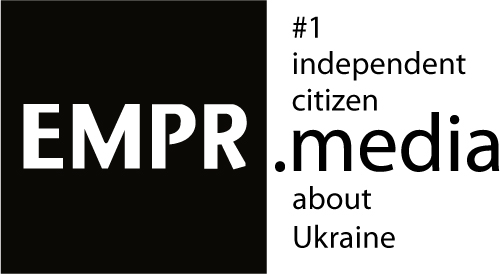
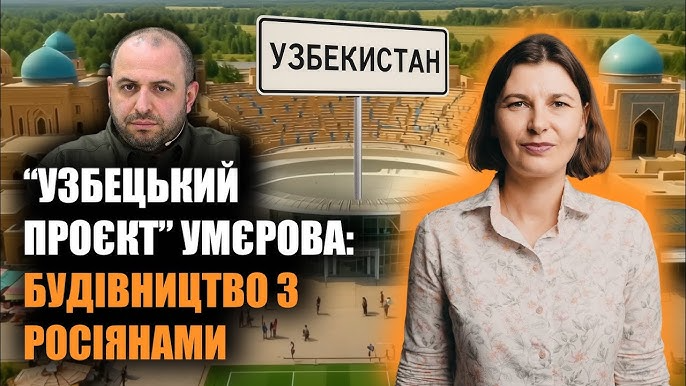

![The Kyiv Instytutska Street massacre during the Maidan Revolution of Dignity, where Berkut’s “Black Company” shot and killed unarmed protesters. :contentReference[oaicite:2]{index=2}](https://empr.media/wp-content/uploads/2026/02/photo-1-480x270.png)
